
Hamburg, officially the Free and Hanseatic City of Hamburg, is the second-largest city in Germany after Berlin and 8th-largest in the European Union with a population of over 1.9 million. The Hamburg Metropolitan Region has a population of over 5.1 million and is the ninth-biggest metropolitan region by GDP in the European Union.
Amerika is the spelling for "America" in various languages, referring to either the Americas or the United States. It may also refer to:

Christopher Street Day (CSD) is an annual European LGBTQ+ celebration and demonstration held in various cities across Europe for the rights of LGBTQ+ people, and against discrimination and exclusion. It is Germany's and Switzerland's counterpart to Gay Pride or Pride Parades. Austria calls their Pride Parade Rainbow Parade. The most prominent CSD events are Berlin Pride, CSD Hamburg, and CSD Cologne in Germany, and CSD Zürich in Switzerland.

Jens Grand, the Firebug was a Danish archbishop of Lund (1289–1302), titular Archbishop of Riga and Terra Mariana (1304–1310), and Prince-Archbishop of Bremen, known as the central figure of the second ecclesiastical struggle in Denmark in the late 13th century. He was an outstanding jurist of canon law.
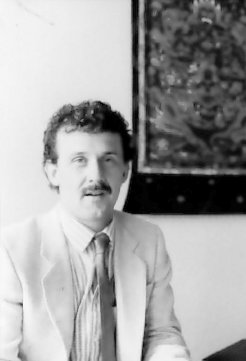
Herbert Ludwig Rusche is a German politician and LGBT activist.
Friedrich Radszuweit was a German manager, publisher, and author and LGBT activist, who was of major importance to the first homosexual movement.
Axel Schock is a German journalist and author.
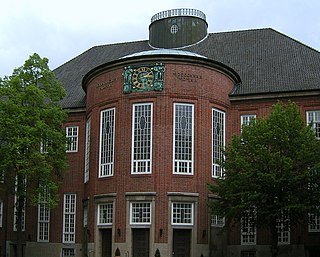
The Gelehrtenschule des Johanneums is a Gymnasium, or grammar school, in Hamburg, Germany. It is Hamburg's oldest school and was founded in 1529 by Johannes Bugenhagen. The school's focus is on the teaching of Latin and Ancient Greek. It is proud of having educated some of Germany's political leaders and some of Germany's notable scientists. The school is operated and financed by the city of Hamburg.

Manuela Kay is a German journalist, author and publisher.

Twenty Girls and the Teachers is a 1971 West German comedy film directed by Werner Jacobs and starring Mascha Gonska, Heidi Kabel, Rudolf Schündler and Fritz Tillmann.

Hartmut Schwesinger is the president and CEO of FrankfurtRheinMain GmbH International Marketing of the Region, a company responsible for regional marketing of the Frankfurt/Rhine-Main Metropolitan Region.

Volker von Collande was a German actor and film director. He appeared in more than 40 films between 1934 and 1987. He also directed more than 20 films between 1942 and 1967. Collande was a member of the Nazi Party.
Irene H. Schöne has a PhD in politics and economics and has spent a career working in environmental economics, as well as writing and speaking on these issues.
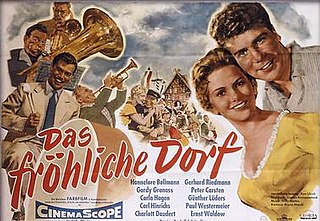
The Happy Village is a 1955 West German comedy film directed by Rudolf Schündler and starring Hannelore Bollmann, Carl Hinrichs and Gerhard Riedmann. It is a remake of the 1934 German film Trouble with Jolanthe. It was shot at the Tempelhof Studios in West Berlin and the Bendestorf Studios outside Hamburg. Location shooting took place around Lüneburg Heath. The film's sets were designed by the art director Hans Kuhnert.
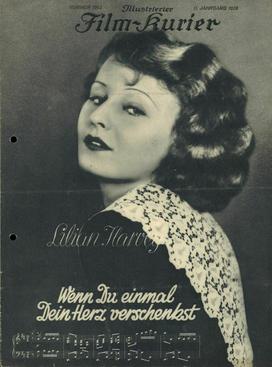
Once You Give Away Your Heart is a 1929 German comedy film directed by Johannes Guter and starring Lilian Harvey, Igo Sym, and Harry Halm. Made at the time of the conversion to sound film, it was released in both sound and silent versions.
Hinnerk Schönemann is a German actor. He has appeared in more than ninety films since 1998.

The Hamburg Pride Celebration, usually known as CSD Hamburg, is a parade and festival held at the end of July each year in Hamburg to celebrate the lesbian, gay, bisexual, and transgender (LGBT) people and their allies, as part of international LGBTQ pride and Christopher Street Day festivities. Since 1980, the event has been held each year. Hamburg Pride is one of the many gay and lesbian organized event in Hamburg. Its aim is to demonstrate for equal rights and equal treatment for LGBT people, as well as celebrate the pride in Gay and Lesbian Culture.
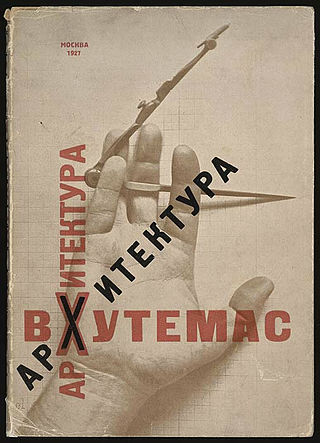
Hinnerk Scheper,, as 'Gerhard Hermann Heinrich Scheper; died 5 February 1957 in Berlin) was a German colour designer, mural painter, architectural colorist, non-fiction author, photographer, monument conservator, restorer, state curator, and urban planner.
Ursula Sillge is a German sociologist and LGBT activist. She organized the first national lesbian gathering in East Germany, and between 1970 and 1990 was one of the main lesbian activists in the country, pressing authorities to recognize the rights and allow visibility of the LGBT community. In 1986, she founded the Sunday Club in Berlin. It was the only secular association representing homosexuals in the 1980s, though it was not officially recognized. The organization became the first legal association to represent the LGBT community in East Germany when it was allowed to register in 1990. Sillge resigned as director of the Sunday Club in 1991 to found the LGBT archive known as the Lila Women's Archives. After the fall of the Berlin Wall, she was able to earn her doctorate. In addition to running the archives, she has published several works about homosexuality and women behind the Iron Curtain.













